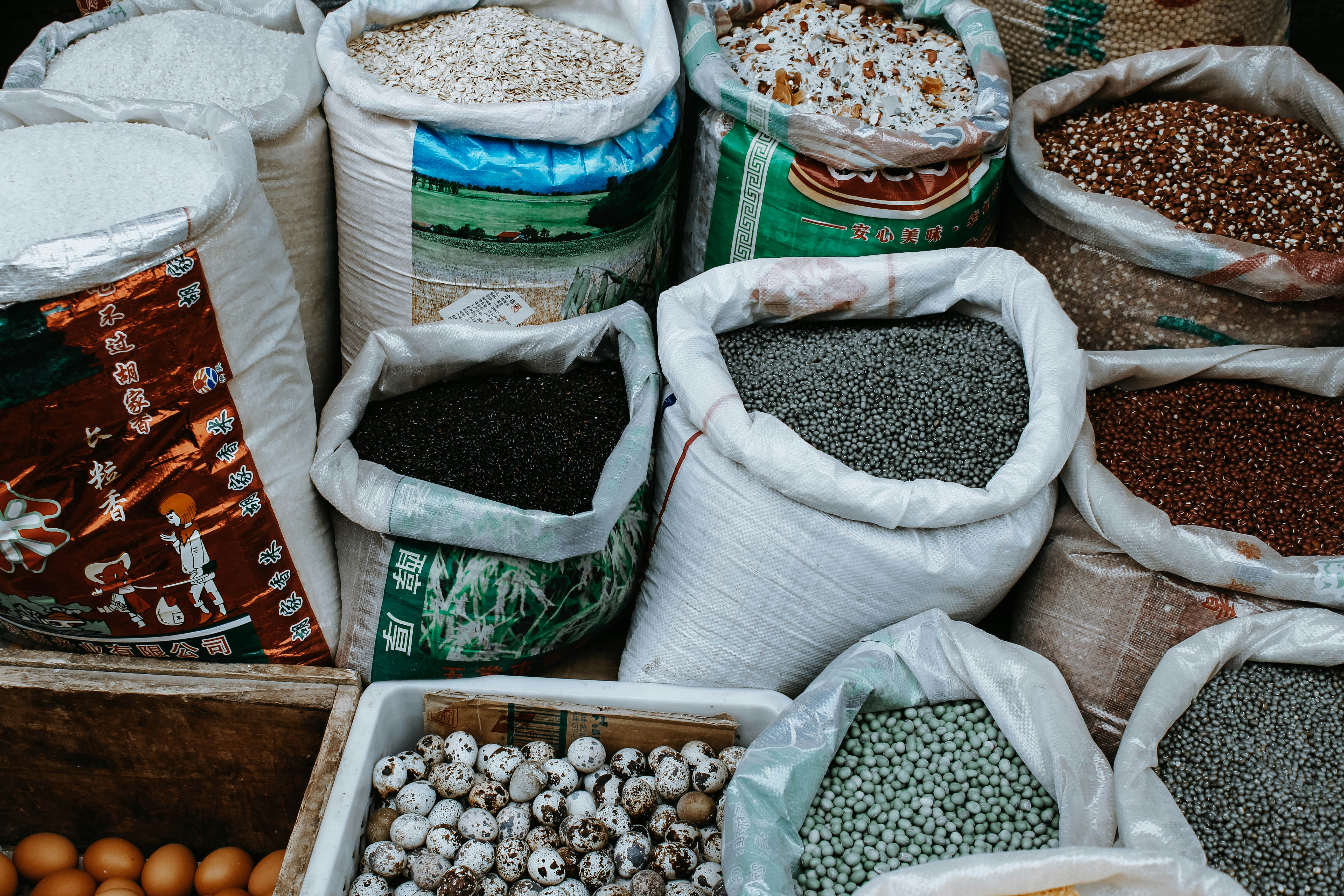Unveiling China's Secret Commodity Stockpiles: What Lies Ahead?

Xi Jinping's extensive reserves of grain, natural gas, and oil hint at future challenges.
In a move shrouded in secrecy, China under President Xi Jinping has been amassing vast stockpiles of essential commodities, including grain, natural gas, and oil. This strategic accumulation suggests that China is preparing for potential future disruptions, both economic and geopolitical. The sheer scale of these stockpiles has prompted widespread speculation about the motivations behind them and what they signify for the global landscape.
Motivation Behind the Stockpiles
There are several potential reasons for China's aggressive stockpiling. One key motivation is the preparation for global supply chain disruptions, which have become increasingly common in recent years. By securing large reserves of critical commodities, China aims to insulate itself from external shocks that could threaten its economy.
Another reason is the safeguarding against geopolitical conflicts and economic sanctions. Given the rising tensions between China and other global powers, particularly the United States, having ample reserves of essential commodities could provide a buffer against potential sanctions or trade restrictions. Ensuring food and energy security for its vast population is also a critical concern for China's leadership.
Impact of COVID-19 on Supply Chains
The COVID-19 pandemic has starkly exposed the vulnerabilities in global supply chains. Disruptions in the movement of goods and raw materials during the pandemic have highlighted the importance of having substantial reserves. For China, which relies heavily on both imports and exports, maintaining large stockpiles of essential commodities is a prudent measure to mitigate similar crises in the future.
Examples of such disruptions include the temporary halts in manufacturing and shipping, which created bottlenecks and shortages in various sectors. By building up reserves, China can ensure that it remains resilient in the face of such global disruptions, maintaining economic stability and meeting the needs of its population.
Geopolitical and Economic Considerations
China’s decision to build these stockpiles is also influenced by potential geopolitical tensions. The trade conflicts with the United States and other countries have underscored the need for China to secure its own resources. In the event of economic sanctions or trade wars, having substantial reserves of essential commodities can help China weather the storm and reduce its dependence on external suppliers.
The strategic advantage of such stockpiles cannot be overstated. They not only provide a safety net in times of crisis but also enhance China’s leverage in international negotiations. During periods of conflict or economic pressure, these reserves can act as a deterrent against foreign economic aggression.
Strategic Advantages of Stockpiling
The primary benefit of maintaining large reserves is the ability to maintain domestic stability. In times of global scarcity, these stockpiles ensure that China can meet the needs of its population without relying on potentially unreliable international supply chains. This is particularly important for essential commodities like grain, which are critical for food security.
Additionally, these stockpiles provide China with greater strategic flexibility. In international negotiations or conflicts, having ample reserves allows China to sustain itself independently, making it less vulnerable to external pressures. This strategic autonomy is a significant advantage in a world where economic and geopolitical tensions are rising.
Secretive Nature of the Stockpiles
The secretive nature of these stockpiles raises several questions. Why is China keeping these reserves under wraps? The secrecy could be a strategic decision to prevent potential adversaries from understanding China's true capabilities and preparations. It also creates uncertainty in global markets, which can work to China’s advantage by keeping competitors and potential aggressors guessing.
However, this secrecy also generates concern and speculation among the international community. Other nations may view China’s actions as a sign of impending conflict or economic instability, leading to heightened tensions and potential pre-emptive measures by other countries.
Future Challenges and Preparations
The extensive stockpiling hints at the challenges China anticipates in the future. These could include further global economic disruptions, prolonged geopolitical conflicts, and escalating trade wars. By proactively building up reserves, China is positioning itself to navigate these challenges with greater resilience and stability.
China’s proactive measures reflect a broader strategy of economic self-sufficiency and preparedness. In a world marked by uncertainty, having substantial reserves of essential commodities provides a significant strategic advantage, ensuring that China can maintain stability and pursue its long-term goals regardless of external pressures.
Conclusion
China's secret commodity stockpiles represent a strategic move to prepare for potential global disruptions and challenges. By amassing vast reserves of grain, natural gas, and oil, President Xi Jinping is ensuring that China remains resilient and secure in an increasingly uncertain world. This preparation underscores the importance of understanding China's strategies and their implications for global stability and future geopolitical dynamics.
Author: Gerardine Lucero
Copper's Comeback: Inside BHP And Lundin's Argentine Asset Acquisition
Copper, often dubbed "the metal of electrification," is experiencing a resurgence in demand due to its critical role in ... Read more
Revitalizing Commodities: How Clean Energy Is Breathing New Life Into A Stagnant Market
The commodities market, traditionally a cornerstone of investment portfolios, has experienced a decade of stagnation. Ho... Read more
European Airports Disrupted By Escalating Climate Protests
Climate activists have escalated their protests at European airports, blocking runways and causing flight disruptions in... Read more
Hungary's Russian Oil Dilemma: Why Brussels Is Cautious In Offering Support
Hungary's reliance on Russian oil has led it to seek support from Brussels to ensure continued access to this crucial en... Read more
Copper Miners Brace For Industry Overhaul As End Users Seek Direct Deals
The copper mining industry is bracing for a significant overhaul as end users, including cable manufacturers and car com... Read more
Woodside Energy Expands US Presence With $1.2bn Tellurian Acquisition
Woodside Energy has agreed to acquire US liquefied natural gas (LNG) developer Tellurian in a $1.2 billion deal. This ac... Read more

